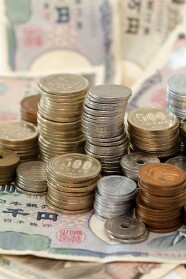The Japanese yen is strengthening against its major rivals to start the trading week. Despite a wide array of factors that should send the currency lower, the yen is continuing momentum from the five sessions. With bitter trade discussions on the horizon, can Tokyo prevent further economic declines in the aftermath of the string of natural disasters?
At this weekâs policy meeting, the Bank of Japan (BOJ) is expected to warn of rising growth risks to the national economy. Citing the US-China trade war, volatile financial markets, and sluggish demand from China, BOJ officials will forecast that Tokyo will continue to cool down. This will be the reason for maintaining the countryâs decade-long ultra-easy monetary measures, like negative interest rates and purchasing bonds.
Some of the latest numbers suggest that markets are just as bearish. The Tankan survey, a quarterly economic study by the BOJ, shows that sentiment among large manufacturers was unchanged between November and December. For the second consecutive month, sentiment was flat at 19, following three straight quarters of reductions.
There is also a new threat lurking: risky US loans.
According to new estimates from UBS Group AG, Japanese financial institutions have snatched one-third of the loans made to overleveraged US businesses. The latest figures show that these banks are holding about $1 trillion.
While Japanese banks have been purchasing top-rated AAA companies in recent years, the cracks are beginning to appear. So far this month, more than $2.5 billion has been taken out of leveraged-loan funds. Wells Fargo and Barclays, for example, pulled $415 million from the market.
Stephen Caprio wrote in the organizationâs research:
The Japanese bid for US loans will not be easily broken. Most Japanese banks are buy-and-hold investors; outright selling will be fairly limited unless the prospect of outright credit losses becomes likely, necessitating much higher recession risk than today.
On the data front, a wave of numbers disappointed markets last week. Core machinery orders rose less than expected, the corporate goods price index rose, and the Indices of Tertiary Industry Active slightly beat median estimates.
The USD/JPY currency pair tumbled 0.55% to 112.74, from an opening of 113.37, at 17:30 GMT on Monday. The EUR/JPY dipped 0.09% to 128.03, from an opening of 128.14.
If you have any questions, comments or opinions regarding the Japanese Yen,
feel free to post them using the commentary form below.
